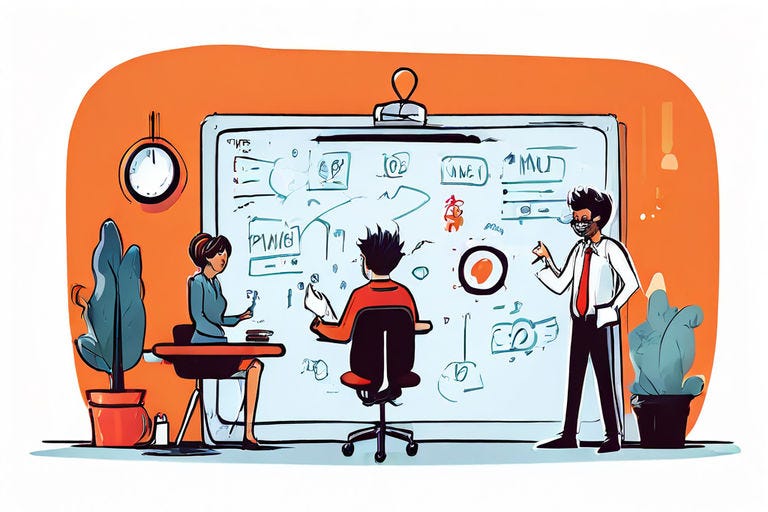How to Land the Right Early-Stage Startup Job After College
Cold Emails, Gut Instincts, and In-Person Work
For my first full-time job after college, I joined Maybern, a seed-stage startup. I was the 5th engineering hire and 11th overall hire. After one year working here, I can safely say I made the right decision.
But my path felt a lot like throwing darts at a board. It took a three-month engineering internship at a different startup, a year of writing about startups for a venture capital firm, and a whole lot of emails, calls, and interviews to land this role.
Now, I want to share three lessons I’ve learned about finding the right fit at an early-stage startup. These lessons may not apply to everyone . . . I’m just sharing my personal takeaways.
Lesson 1: Cold Emails Work
Both of my past two roles can be traced back to cold emails. That includes my current role at Maybern and the Research Fellow position at Contrary (you can read more about my experience as a Research Fellow here). Below is the original cold email that led to a long string of other emails and calls ultimately resulting in my current job - nearly one year after I sent it.
The connections you make while networking may even allow you to help out a friend. In one case, I found a startup interesting, but it turned out that they were only hiring front-end engineers. I later connected them with a friend interested in front-end roles, and she ended up working there.
When networking, start by reconnecting with people you already know. Then, move on to cold outreach. You can reach out to investors, to the talent teams at VC firms, to independent recruiters, and directly to companies. Be respectful, precise, and brief in your emails. Provide your qualifications, explain what you’re looking for, and thank them for their time. There’s a bunch of other small tips that I might cover in a future post, but that covers the basics.
To stay organized, use whatever system works for you: Excel, Google Docs, Notion, etc. I used to be anti-Notion but have since been converted. I published the Notion template I used to track the companies I applied to and people I spoke with here.
Lesson 2: Trust Your Gut
In my senior spring at college, I narrowed down my engineering internship offers to two Series A startups. This happened around April 2022, almost a year before I joined Maybern.
The first startup just felt right. It was working on a problem that I found interesting, and I clicked with the team. I could tell that they felt I would be a great fit as well.
On the other hand, the second startup seemed like a better bet on paper. It had more experienced and accomplished founders with a bigger vision. When I was making my decision, the team was proactive in coordinating calls with current employees. Those employees spoke so highly of the company that I felt like I had to accept their offer. However, I got the sense that they weren’t as sure that I would be a good fit but were willing to take a chance on me.
My gut turned out to be right. The second startup was not the right place for me, even though it was a great fit for other people. We mutually parted ways at the end of the internship instead of working toward a full-time offer.
The moral of the story? When deciding between offers, trust your gut.
Lesson 3: Work In-Person
One major reason the second startup was a poor fit for me was the remote work culture. The engineering team members were helpful and friendly, but collaboration was difficult. Out of the approximately 30 engineers, most were based in India, which restricted communication to digital calls at odd hours. Team members located in the SF/Bay Area would meet once every week or two weeks at the VC firm’s headquarters to co-work. But the only members of the engineering team who were present were the Head of Engineering and the team lead for a different team than mine. Though they tried to support me, they were stretched thin.
At Maybern, I come into the office about 90% of the time, as do most of my colleagues. In-person collaboration significantly improves our iteration speed and team cohesiveness. I’ve seen repeatedly that issues are resolved much more quickly in-person than via Slack or Zoom. I’ve also found working in-person to be much more enjoyable than working remotely.
There are high-flying startups that seem to have found success with remote work, but until I’ve experienced that firsthand, my advice is to stick to in-person startups. When you’re networking and interviewing, clearly communicate your preference early on to avoid wasting both parties’ time.









Very interesting! I'm curious about how you assess which startup to join. What traits your gut feeling is looking for?
Founders' grit, subtle sense of urgency?